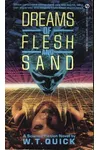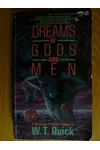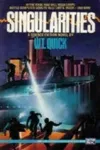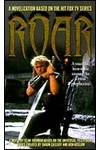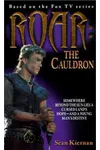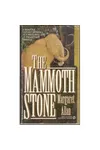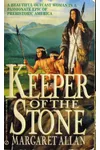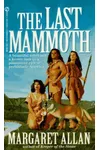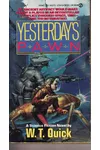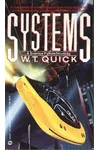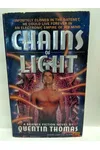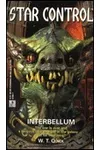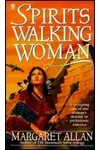Picture a storyteller who spun tales of cyberpunk intrigue and prehistoric adventure with equal flair—meet W.T. Quick, also known as Margaret Allan! Born in 1946, this American author crafted over 28 novels, blending high-tech dystopias with timeless human struggles. A libertarian thinker and blogosphere pioneer, Quick’s stories captivate with their bold ideas and sharp wit.
From his seminal cyberpunk novel Dreams of Flesh and Sand to the thrilling prehistoric saga The Last Mammoth, Quick’s work crosses genres, weaving technology, politics, and human nature into unforgettable narratives. Let’s dive into the life and legacy of this versatile sci-fi visionary!
The Making of W.T. Quick / Margaret Allan
Born in Indiana in 1946, William Thomas 'Bill' Quick grew up with a passion for storytelling, typing poetry at 13 on an old Underwood typewriter that smelled of mothballs and rust. Though he attended The Hill School, he didn’t graduate, choosing instead to carve his own path. By 1979, Quick debuted with Instructions Enclosed, a sci-fi novel that hinted at his knack for blending technology with human drama. His early years were shaped by the rise of cyberpunk and the libertarian ideals that would define his voice, both in fiction and on his influential blog, Daily Pundit.
W.T. Quick / Margaret Allan’s Unforgettable Stories
Quick’s bibliography is a genre-spanning treasure trove. His 1988 cyberpunk classic Dreams of Flesh and Sand follows a data hunter navigating a world dominated by AI and megacorporations—a gritty, noir-infused tale that cemented his place in the genre. Its sequels, Dreams of Gods and Men (1989) and Singularities (1990), further explored virtual reality and nanotechnology with taut, vivid prose.
As Margaret Allan, Quick ventured into prehistoric fiction with The Last Mammoth (1996), part of the Mammoth Stone trilogy. This bestselling series follows a tribe battling predators and ice-age perils, blending adventure with anthropological depth. Quick also co-authored the Quest for Tomorrow series with William Shatner, a six-novel saga of interstellar adventure. His 2014 disaster thriller Lightning Fall climbed Amazon’s Hard Science Fiction charts, praised for its libertarian undertones and pulse-pounding pace.
Quick’s style is clear and dynamic, often laced with his libertarian views on freedom and technology. Whether depicting dystopian futures or ancient struggles, his stories probe the tension between individual will and societal control, making them resonate across generations.
Why W.T. Quick / Margaret Allan Matters
W.T. Quick didn’t just write novels; he shaped the digital age. In 2001, he coined the term 'blogosphere' on his Daily Pundit blog, a conservative platform that became a hub for libertarian discourse. His fiction, meanwhile, influenced cyberpunk’s evolution, offering prescient visions of AI and corporate dominance that feel eerily relevant today. Quick’s ability to weave political philosophy into thrilling narratives earned him a loyal following, with Lightning Fall even catching the eye of USA Today via Instapundit’s Glenn Reynolds.
Though less celebrated than some sci-fi giants, Quick’s versatility and foresight make him a hidden gem. His work bridges the gap between pulp adventure and philosophical depth, inspiring readers to question authority and embrace innovation.
- Born: May 1946, Indiana, USA
- Key Works: Dreams of Flesh and Sand, The Last Mammoth, Lightning Fall
- Pen Names: Margaret Allan, Quentin Thomas, Sean Kiernan
- Notable Achievement: Coined 'blogosphere' in 2001
About W.T. Quick / Margaret Allan
Ready to explore a world where AI battles human spirit and mammoths roam icy plains? Snag Dreams of Flesh and Sand or The Last Mammoth and dive into W.T. Quick’s thrilling universe!
